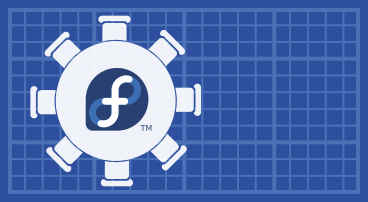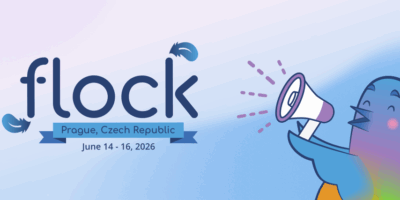This is a part of Fedora Council Elections interviews series. This is an important election, as two candidates will be selected as the Elected Representives, seats which carry full membership in our new top-level leadership and governance body.
Voting is open to all Fedora contributors. The elections starts on November 18th and closes promptly at 00:00 UTC on November 26th.
Please read the responses from all five candidates and make your choices carefully:
- Rex Dieter
- Haïkel Guémar
- Michael Scherer
- Pete Travis
- Langdon White
Feel free to ask questions of the candidates here or elsewhere!
Interview with Pete Travis (randomuser)
What is your background in Fedora? What have you worked on and what are
you doing now?
I started contributing to Fedora late in 2011, after using it for a few releases. I was looking to expand my expertise in administering Linux systems, and after getting a lot of help from the Fedora community, I wanted to give something back. The Docs team welcomed me into their ranks; it seemed like a good pairing for the time I was spending researching, testing, and taking notes.
Contributions to Fedora Docs began with reading through the latest drafts and providing maintenance updates, something I still do regularly. I’ve since been elected for leadership of the Docs Project, wrangled the Release Notes for the last few releases, started drafting a couple new guides, and helped keep all the guides on track with the diverse changes in each Fedora release.
I spend a fair amount of time keeping up with the Fedora community; tracking various mailing lists, helping (or getting help) in #fedora, answering questions on Ask Fedora. It is a good way to identify gaps in documentation, clarify how the project works, and track the greater community’s perception of Fedora. A number people I’ve met in these areas have moved on to being productive contributors, and I’m happy to had a role in their beginnings with the project. Within Docs, we have a semi-formal mentorship program that has been working out well, and I participate in the Join SIG to help folks get started in other groups.
In other areas, I try to help out where my efforts overlap with other teams and make an effort to keep track of happenings within the project. I’ll generally use a prerelease or rawhide on all my machines to catch both changes required for docs, and help test packages. I have some infra privileges that generally get used for docs ventures to help keep Fedora’s sysadmins’ valuable time free. I maintain a few packages, try to follow along with Fedora’s hugely talented application developers, and sporadically speak up in meetings or on mailing lists.
Categorically, I try to keep up with everything I can, and look for opportunities to contribute.
What is your vision for Fedora? Where should we be in five years?
Fedora’s strength lies in the openness of the community, the innovations we’ve made available, and the diversity of choices available to Fedora users. The side effect of such a broad number of choices is the
difficulty in finding the right solution for one or all users.
I want to see Fedora move in a direction where the user experience is streamlined and improved, without sacrificing the limitless potential available in the distribution. To some extent, Fedora’s default deliverable is perceived as the Project’s vision of the one true path, and the dedicated maintainers of alternatives to the default need more recognition and support.
I’ve encountered many small businesses with rather specific needs, and only costly, dubiously supported proprietary solutions to meet them. Small businesses and organizations might not have special requirements, and have use cases that could easily be accommodated by free software, but they aren’t aware of it. There is a lot of opportunity for Fedora (and open source based service providers) to make headway with general business use desktops outside the enterprise, and expand offerings that
cater to industry-specific niches.
In the future, above all things, the Fedora contributor base should grow. We should focus on nurturing new contributors and enabling them to develop and work towards common goals. We should view every user as a potential contributor, and provide opportunities for participation in as many contexts as we can guide them through. Where this will take us will depend on the interests and technology of the time, but if we as leaders can keep those conversations alive and productive, I’m convinced there will be a robust, viable result.
What does it mean for Fedora to be successful? What is “winning” for our project?
I’ll be specific here: We’ve won when Fedora stops being referred to as “Desktop RHEL” or “Red Hat’s Test Bed”. Success means demonstrating that a rapid release cycle can be a sustainable thing, and that
stability doesn’t equal stagnation. We’ve won when we’ve catalyzed the open source community towards effective communication between interdependent projects, and made it possible to effectively keep up
with the new stuff without sacrificing long term usability of the distribution itself.
In many contexts, Fedora is already successful, but there’s room for improvement in demonstrating that success.
What are the most pressing issues facing Fedora today? What should we do about them?
The Fedora development community is demonstrably the most active subset of the project. There’s new Products, a constant flow of new features and changes, and steady improvement of Fedora’s security posture. While the Project is inherently developer-oriented, the rapid pace of progress leaves ancillary groups such as Documentation, QA, Translations, or support volunteers struggling to keep up. Potential contributors trying to land a place in the project are faced with a constantly moving target.
This can be remedied with more effective recruitment practices and improved communication between development and outreach communities.
What are your interests and experience outside of Fedora? What of those things will help you in this role?
Interests, let’s see… I like creating things. I build furniture in the garage and brew beer in the kitchen. I have a plan for a home that’s seen iterative and sometimes drastic improvement. I like to take things apart and see how they work, then put them together improved; cars, electronics, code, stuff. Sometimes I like to pack a bag and hike for a few days.
Life has provided a lot of interesting experience along the way. I’ve drilled for oil, managed a B2B marketing department, built houses, provided corporate IT support, repaired automobiles, consulted for small business management, and administered a variety of computer infrastructure (in no particular order).
Besides the obvious places where I’m actively using and advocating open source software for my day job, I have always taken an active interest in learning how people and organizations leverage technology. The
things I’ve learned from experience are opportunities for Fedora to gain marketshare and mindshare.
Care to share a screenshot of your Fedora desktop?
Have you used Fedora in a cloud or server context?
I’ve done testing with Fedora Cloud when working on the draft Cloud Guide. For personal use, I have Fedora behind a relatively large fileserver, a load-balancing edge router, a handful of application servers, and a whole bunch of test VMs used when writing documentation for a variety of use cases. My little testbed gained Fedora Server with the domain controller role recently, and I’m really looking forward to
exploring its potential.
What did you do on your last vacation or weekend off?
I visited a local brewery. The master brewer visited with us for a while, and a jest about cloning American lagers got an interesting response: He was positive about the idea of other brewers trying to replicate his craft, and described an perspective about the open sharing of ideas that completely paralleled Fedora’s Foundations. It was surprising to find someone that had developed an analogue of familiar open source ideals completely outside of the software context. Naturally, I’ll be introducing him to the brewing software I package on the next visit
What do you want to achieve as member of council?
Enable collaboration, enable communication, and represent contributors. I’m excited to see how the active leadership model will develop, and looking forward to being a part of the process. Fedora is a community project; it is less about what I want to achieve and more about what *you* want the Council to help you achieve. So please, speak up!
How do you envision improving collaboration with downstream communities (ie: CentOS) ?
From what I’ve seen, there’s already a good relationship between the Centos and Fedora communities. The volume and quality of communication has increased recently, a trend that will probably continue. I don’t have a specific vision for the relationship – ultimately, the nuts and bolts of collaboration between the two will be determined by the contributors doing the work in whatever area.
In general, I’m in favor of working with them when there is mutual interest, contributors from each project keeping tabs on the other, and open communication. I follow the centos-docs team, for example; not because of any top-down directive, but because sometimes I can help them and sometimes they can provide some insight for me. I could see Fedora cloud instances running on CentOS hosts as an attractive option for organizations, and a viable opportunity for collaboration.
Anything else voters should know?
This is my dog, Skoda. She heard me talk about packaging for Fedora, and wanted to get involved.








